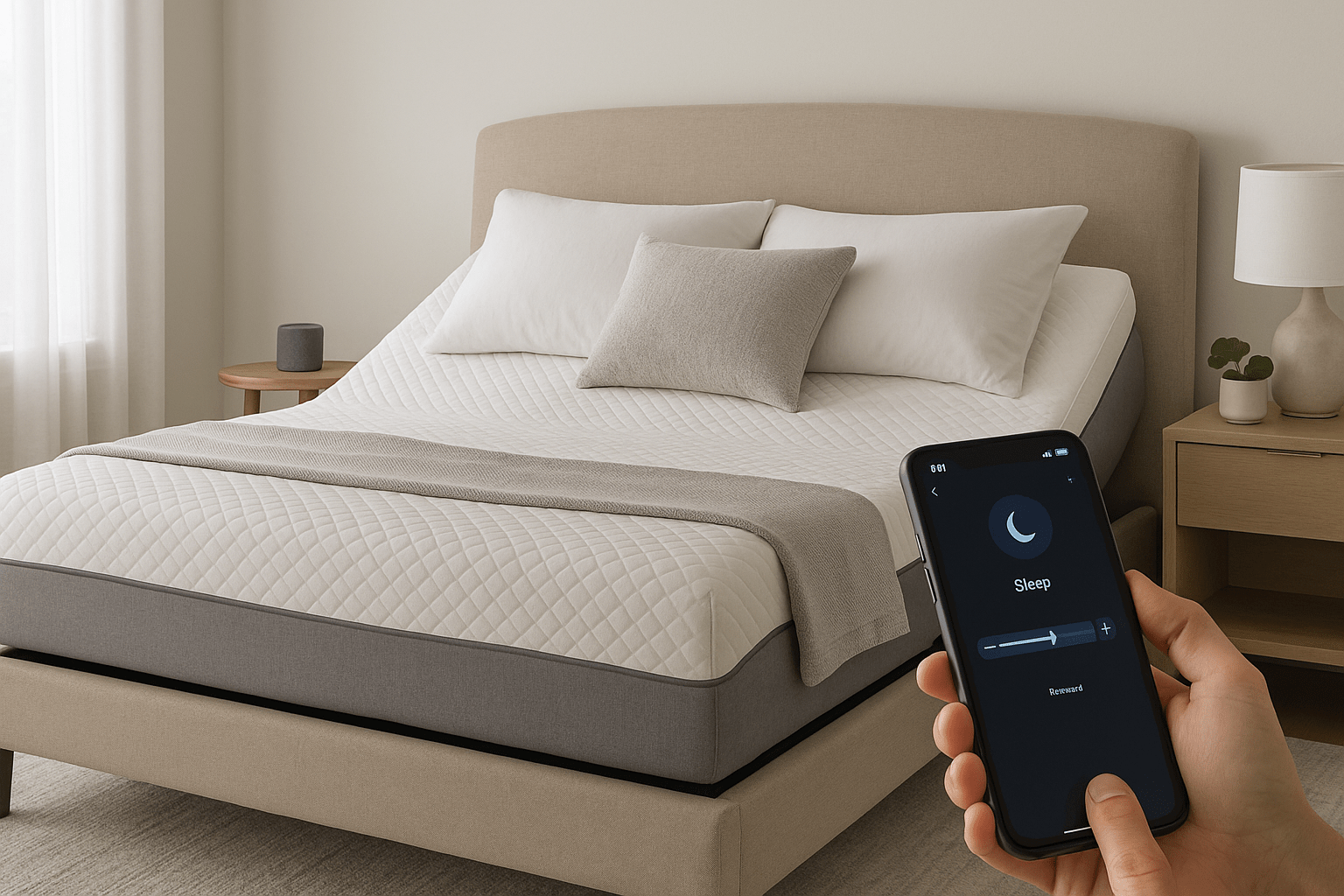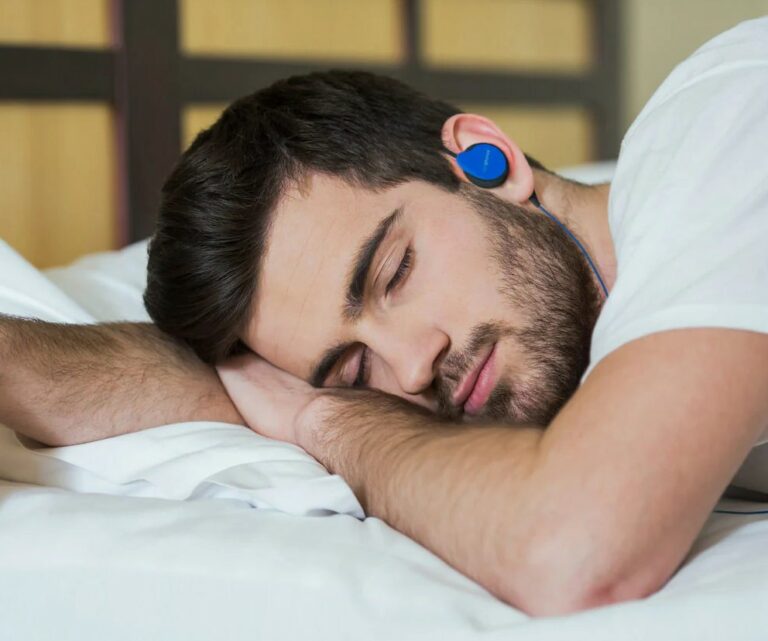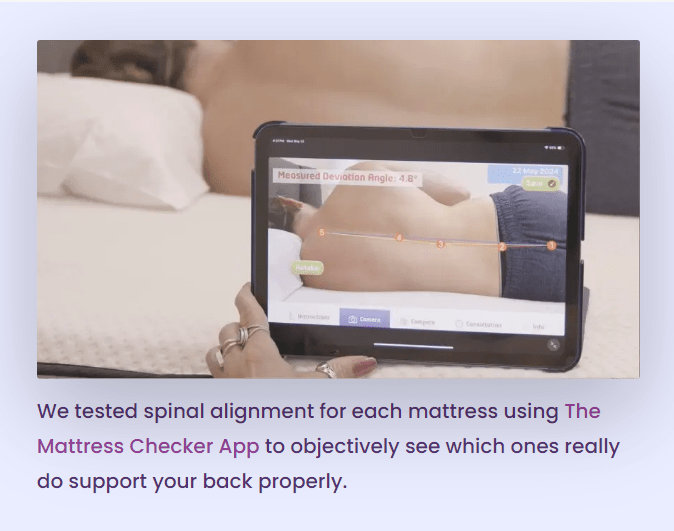
Sleep Smart: High-Tech Sleep Could Be The Upgrade You Need
Smart beds are shaking up the mattress industry with features like adjustable firmness, sleep tracking, and zoned comfort, often controlled by an app on your phone. Touted as a game-changer for people with chronic pain, couples with different sleep preferences, and even elite athletes, these beds come at a premium price. But are they truly worth it? In this guide, we explore the benefits, drawbacks, and top smart bed brands like Sleep Number, Personal Comfort’s Rejuvenate, and the ReST 5-Zone to help you decide if high-tech sleep is the upgrade you’ve been waiting for.
Smart Adjustable Beds: Features & Benefits
Imagine a mattress that adjusts to your body’s needs with a tap on your phone, tracks your sleep patterns, and promises relief from chronic pain. It sounds futuristic, but smart beds like the Sleep Number 360 i8 Smart Bed are already making that a reality. These smart adjustable mattresses, also offered by brands like Personal Comfort, blend customization with technology, appealing to couples, athletes, and those with chronic conditions.
But are smart beds really worth the hype or the price tag? Let’s dig into the pros, cons, and how they compare to more traditional options.
What Are Smart Beds?
Smart beds are adjustable mattresses that use air chambers, foam layers, and integrated tech to offer customizable firmness, support, and sleep tracking. Sleep Number 360 i8 popularized the concept with its dual-chamber design, letting each partner adjust their side independently. Competitors like Personal Comfort’s Rejuvenate, ReST Bed, Saatva Solaire, and Air-Pedic have since entered the market, refining airflow systems to reduce sagging and improve support.
Many smart beds also offer built-in sensors to track sleep metrics like heart rate, movement, and sleep duration. These insights can help users spot patterns and make changes to improve rest, though they’re not medical-grade devices.
What Are Adjustable Beds and How Are They Different from Smart Beds?
Adjustable beds are mechanical bases that allow you to raise or lower the head and foot of your mattress using a remote or app. They’re often recommended for people with snoring issues, acid reflux, or mobility concerns. However, an adjustable base is just the frame—it doesn’t change the firmness or offer tech features on its own. In contrast, a smart bed is a mattress with built-in technology like air chambers, sensors, and sleep tracking. While smart beds can sometimes be paired with adjustable bases, they’re focused on personalizing firmness and collecting sleep data, making them a more integrated and high-tech solution for sleep customization.
The Pros of Smart Beds
- Chronic Pain Relief: Adjustable positioning can alleviate back pain, sciatica, fibromyalgia, and more. Raising the head or legs can also help with conditions like acid reflux or sleep apnea.
- Improved Recovery: Athletes benefit from customized support, which helps sore muscles recover faster. Studies show personalized surfaces can enhance sleep efficiency and recovery.
- Adapts to Life Changes: Whether you’re pregnant, gaining weight, or recovering from an injury, smart beds allow on-the-fly adjustments without replacing your mattress.
- Split Comfort for Couples: Dual-zone designs solve the age-old “firm vs. soft” argument by giving each partner their own setting.
- Sleep Tracking Features: Some models track heart rate, breathing, and movement through apps, great for tech lovers trying to improve sleep hygiene.
The Cons of Smart Beds
- High Price: Expect to spend $4,000 to $8,000. By contrast, high-quality foam or hybrid mattresses often cost under $3,000.
- Repairs & Maintenance: Air pumps, sensors, and software can fail over time. Repairs can be costly, and not all parts are covered under warranty.
- Noise: Air chambers may emit noise during adjustments. While newer models are quieter, some users still find it disruptive at night.
- EMF Concerns: Smart beds with Wi-Fi raise questions about EMF exposure, although current research shows minimal risk for most users.
- Tech Glitches: App crashes, Bluetooth pairing issues, and Wi-Fi dropouts are common frustrations reported by users.
Smart Bed Brand Comparison
| Mattress | Adjustable Zones | Sleep Tracking | Price Range | Best For | Review Link |
|---|---|---|---|---|---|
| Sleep Number 360 i8 | Dual Zones | Yes | $4,000–$7,000 | Couples, Tech Users | Review |
| Personal Comfort’s The Rejuvenate | 45 Firmness Levels | Yes | $3,500–$6,500 | Back Pain, Custom Feel | Review |
| Saatva Solaire | 50 Settings | No | $3,300–$4,900 | Luxury Feel, Split King | coming soon! |
| Air-Pedic 800 Series | Multi-Zone | No | $3,000–$6,000 | Hot Sleepers, Back Support | Review |
| ReST 5-Zone | 5-Zone Smart System | Yes | $5,000–$9,000 | Athletes, Tech-Heavy | coming soon! |
ON MOBILE: TAP TABLE AND DRAG LEFT TO SEE FULL CHART
Are Smart Beds Worth It?
Smart beds offer unparalleled customization, making them a compelling choice for couples, athletes, and those with chronic pain. Research backs their potential to improve sleep quality and alleviate discomfort (Kovacevic & Shapiro, 2022), while features like sleep tracking add value for tech-savvy users. However, the $4,000–$8,000 price tag, maintenance demands, and occasional software glitches require careful consideration. Compared to traditional mattresses or adjustable beds, smart beds are a premium option that may not suit every budget or lifestyle.
Before buying, explore user reviews on multiple platforms, including forum boards like Reddit, and review warranty details carefully, especially for repair coverage. If you have health concerns, consult a doctor to ensure a smart bed is the right fit. Financing options from brands like Sleep Number or Saatva can help make the cost more manageable. Ultimately, a smart bed can be a worthwhile investment if its features support your sleep goals and you’re ready to pay for the comfort of true customization.
Want personalized recommendations? Browse our top-rated smart beds for your sleep needs.
Compare Top-Rated Smart Beds 🔗






